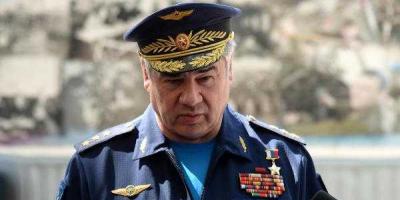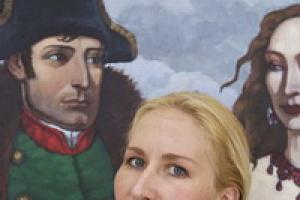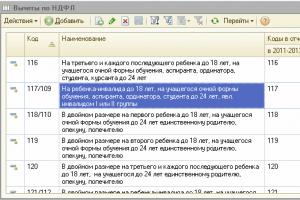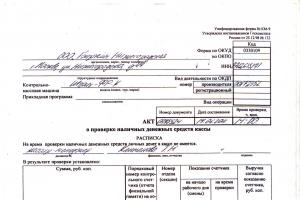For the 100th anniversary of the special services, with the support of Tatarstan, a film was made about the legendary intelligence officer
On December 21, the Zvezda TV channel will air a documentary dedicated to the outstanding Soviet intelligence officer Iskhak Akhmerov. Work on the creation of the film was carried out with the support of the Republic of Tatarstan. And on December 14, Prime Minister of the Republic of Tatarstan Alexei Pesoshin ordered the installation of a memorial plaque in Kazan on the house where Akhmerov worked in 1920-1921. Realnoe Vremya columnist Yulduz Khaliullin, a veteran of Soviet diplomacy and international journalism, decided in his column to recall the legendary illegal intelligence officer who led a network of agents in the United States. Akhmerov’s data was used in making decisions that determined the course of the 20th century, and the problems with which he worked have not lost their relevance in the 21st century.
Anxious prologue
The problem of nuclear weapons and the exclusion of their use for any purpose in any corner of the earth still remains the most important global topic. Over the last 6 months of 2017, the region of the Korean Peninsula became the most dangerous node of political and military tension. The DPRK is actively conducting nuclear missile tests contrary to the demands of the international community and the resolution of the Security Council.
As is known, Russia opposes the nuclear status of North Korea. To relieve tensions, together with China, Russia has developed a joint “road map” for negotiations, primarily between Washington and Pyongyang. Seoul and Tokyo are interested in this, but Washington continues to put pressure on Pyongyang through all channels. According to some reports, North Korean ballistic missiles with a nuclear warhead can reach the United States. Apparently this makes the American ruling circles think.
Recently, US Secretary of State Rex Tillerson made a statement about his readiness for dialogue with the DPRK. True, immediately after this, National Security Advisor Herbert McMaster announced that on December 18 of this year, Donald Trump would announce a new national security strategy. In addition, Trump just signed a $700 billion US military budget. Of this, about $70 billion will go to finance foreign operations, which can be assumed to include military activities around the Korean Peninsula.
Monument to I. Akhmerov in Chelyabinsk. Photo ob-zor.ru
A film about the legendary intelligence officer for the centenary of the intelligence services
In connection with the alarming international situation, it is now very timely to remember the great son of the Tatar people and the outstanding Soviet intelligence officer Ishak Abdulovich Akhmerov. During his life, Akhmerov managed to work with the problems of the Asia-Pacific region and with nuclear weapons issues, when he informed the leadership of the USSR about the American “Manhattan Project”.
For a long time, the name of Iskhak Akhmerov was strictly classified. They began to write about him only in the last 20 years. On December 21, the Zvezda TV channel will premiere a film about the outstanding intelligence officer “Iskhak Akhmerov. Mr. Resident. The release is timed to coincide with the centennial anniversary of the Russian intelligence services. The film was produced by the Moscow film company Viange Production. The idea of this film was promoted for several years by the Deputy Prime Minister of the Republic of Tatarstan and the plenipotentiary representative of Tatarstan in the Russian Federation, Ravil Akhmetshin. Having received support from Rustam Nurgalievich Minnikhanov, we managed to make a film. Rustam Nurgalievich himself and Akhmerov’s daughter, Ekaterina Iskhakovna, took part in the filming. I have already repeatedly referred to Akhmerov’s biography in my articles. So that this film does not go unnoticed by Realnoe Vremya readers, I want to talk about the hero of the invisible front once again.
Tatar boy from the Urals becomes Consul General in Istanbul
Ishak Abdulovich was born on April 7, 1901 into a Tatar family in the city of Troitsk, which was then part of the Orenburg province, now in the Chelyabinsk region. When the boy was several months old, his father died, and his mother moved to her father in the Kazan province. The grandfather worked as a furrier and taught the smart boy to his craft. After the death of his grandfather, twelve-year-old Ishak became a farm laborer for local farmers, and over the next 5 years mastered half a dozen professions: he was an errand boy in a haberdashery store, worked as a grinder and an apprentice in a printing house, as an electrician’s assistant and as a baker.
The revolution opened up the path to knowledge for him. After completing accounting courses in Moscow, Akhmerov got a job at the People's Commissariat of Education of Tatarstan. In 1919 he was accepted into the party, and a year later he was elected as a deputy of the Kazan City Council. In 1921, he went to Moscow for higher education, where he studied Turkish at the University of the Peoples of the East, and a year later he entered the international faculty of Moscow State University - the future MGIMO. He learned French and English, which will become his second native language. In 1925 he began working at the People's Commissariat of Foreign Affairs of the USSR, and already in 1928 he served as consul general in Istanbul. In three years, Akhmerov went from trainee to consul general, which modern diplomats go through in 25-30 years!

Metric record of the birth of I.A. Akhmerova. Photo archive74.ru
It is more difficult to prove to a Tatar that you are a Turk than to Italian fascists
I think that Akhmerov’s career as an intelligence officer began in Turkey. He made useful contacts, gained experience communicating with foreigners, became acquainted with the basics of recruiting work, and improved his knowledge of Turkish, French and English. After Turkey, he was engaged in operational work in Bukhara, where the fight against the Basmachi was going on. In January 1933, Iskhak Abdulovich was invited for an interview by the head of the foreign department of the OGPU, Artur Artuzov. He announced that the leadership decided to send Akhmerov to China through illegal intelligence.
According to legend, Akhmerov was a Turkish student of oriental studies and was supposed to go to China from Rome. But when he contacted a travel agency in Rome, they explained to him that most Europeans travel to China through the USSR. It was safe for a tourist, but unsafe for a scout. In Rome, after leaving the Soviet embassy, he was detained by Italian carabinieri, but nothing betrayed the “Turkish student.” The second incident occurred on the border of the USSR and Japanese-occupied Manchuria. The Japanese, who knew Russian, interrogated the “Turkish citizen” through a Tatar translator about the purposes of his visit to China. He translated from Turkish into Russian and back. At some point, the Tatar translator had a suspicion: was it really a Turk standing in front of him, and not a Tatar with knowledge of the Turkish language? Akhmerov realized that at any cost he must “convince” the doubting Tatar that in front of them was a 100% citizen of the Turkish Republic.

Daughter of Iskhak Akhmerov Ekaterina Iskhakovna. Photo tatmsk.tatarstan.ru
Classmate agent of Roosevelt and Obama
In Beijing, agent “Jung” (as Akhmerov was called at the Center) became a student at an American university where Europeans and children of the Chinese elite studied. He managed to collect valuable information about Japanese activities in China, but already in 1934 the leadership decided to transfer him to the United States. The most important stage of his work had begun.
Through Europe on the French liner Normandy, agent Jung went to New York. Immediately after his arrival, he began his studies at Columbia University, where such US presidents as Theodore Roosevelt, Franklin Roosevelt and Barack Obama studied over the years. Iskhak Akhmerov left the university as a 100% American. Headed by Iskhak Abdulovich, the illegal Soviet residency in the United States had about 20 sources in the US military and diplomatic departments.
Akhmerov received military-political information valuable for our country from the Nord agent he recruited, who worked in the Ministry of War and had access to reports of US military attaches abroad, as well as government decisions made on these reports. Another valuable source of “Jung” was agent “Kord”, who occupied a senior position in the US State Department. He was recruited on an ideological and political basis. Being an anti-fascist by conviction, he believed that only the USSR could stop Hitler’s aggression in Europe, so he deliberately cooperated with Soviet intelligence.

Iskhak Akhmerov worked in the USA under the name Bill Greinke, 1940s. Photo devjatkin.ru
American wife and the anger of Lavrentiy Beria
In America, Iskhak Akhmerov met his irreplaceable assistant and future wife Helen Lowry (operational pseudonym “Tanya”). She was the niece of US Communist Party General Secretary Earl Browder. Helen turned out to be an excellent liaison and the owner of several safe houses, and took an active part in efforts to obtain reliable American documents for newly arriving employees of the illegal station “Junga”. Soon she herself became involved in the “extraction” of interesting information first-hand, using her charm and personal connections among the White House administration staff. The elegant and intelligent Tatar "Jung", who often met with Helen, fell in love with his American assistant. The young and beautiful girl reciprocated his feelings, and they decided to get married.
Akhmerov’s work in the United States occurred at the very height of Stalin’s repressions. Many diplomats and intelligence officers fell under the conveyor belt of the punitive system. People's Commissar Lavrentiy Beria ordered the recall of almost all legal and illegal residents from abroad, including “Jung”. For Akhmerov, who knew about the imminent war, the order to abandon everything that had been done was a difficult moral test.
In September 1939, a report from Washington landed on Beria’s desk. In response to the NKVD’s instructions to mothball the residency and leave for the Center, Colonel Akhmerov asked for permission to marry agent “Tanya” and return to Moscow with her. Imagine how furious the all-powerful Beria was! He called the head of foreign intelligence, Pavel Mikhailovich Fitin, and scolded him, saying that “American spies had infiltrated the illegal residency of the NKVD in the United States.” Fitin had to try hard to dissuade the People's Commissar. The decisive argument was that Stalin highly appreciated the work of Earl Browder, and Beria did not dare to interfere with the marriage of his niece. However, he took revenge on Akhmerov, demoting him to an intern in the American foreign intelligence department.

The Akhmerov couple. Photo devjatkin.ru
Akhmerov's report cooled relations between the United States and Japan
Despite the difficulties in his career, Ishak Abdulovich did not think of quitting the business he had started. Leaving America for Moscow, in a conversation with a high-ranking American official, he said that he was going to China and from there he would report on Sino-Japanese relations. In Moscow, he compiled a report in which he spoke about Japanese activities in the occupied territories of China and warned America about Tokyo's military preparations. Our agent then passed this report on to Akhmerov’s high-ranking interlocutor. As a result, the materials prepared by Akhmerov ended up on President Roosevelt’s desk.
After this, relations between the United States and Japan began to deteriorate. Roosevelt twice called the Japanese ambassador for explanations, and both times the ambassador refused to comment on the situation. When the ambassador was called again, on December 7, 1941, there was a Japanese air raid on Pearl Harbor. The Americans, who had hitherto remained on the sidelines, entered World War II. Every December we celebrate the offensive of our troops near Moscow. It became possible thanks to divisions from the Far East and Siberia. We were able to transfer them to the capital when it became clear that Japan was busy at war with America. Akhmerov is directly credited for saving Moscow.
Data for the Tehran Conference and the USSR nuclear program
When our army beat the Germans near Moscow, Ishak Abdullovich and his wife were again in the USA. In 1941, Agent Jung again headed the illegal station overseas. For reliable cover, he created a commercial company for sewing and selling fur products. Here the furrier skills he received from his Tatar grandfather came in handy.
Thanks to Akhmerov's network of agents, the Soviet side was well aware of the American plans on the eve of the Tehran Conference in 1943. One of his agents obtained information on the creation of American nuclear weapons (the Manhattan Project). Among the materials sent by Akhmerov were information about American assessments of Germany’s military-political potential, military and political plans of the US government, draft documents prepared for important international meetings, data on negotiations between the German ambassador in the Vatican and representatives of President Roosevelt on the conditions for Germany’s exit from the war. All this information was of great importance and was reported directly to senior management.

Photo by State Television and Radio Broadcasting Company "South Ural"
“He tried not to cut himself any slack, even in small things.”
After returning to Moscow in 1946, he was appointed deputy head of the KGB Department of Illegal Intelligence. After retirement, due to his length of service, he lectured at educational institutions of the Soviet foreign intelligence service. Iskhak Akhmerov died on July 18, 1976 at the age of 76. His wife and fighting friend Elena Ivanovna (Helen) died in 1981.
As one of the great intelligence officer’s colleagues wrote: “Ishak Abdulovich had great willpower, perseverance, and perseverance in achieving his goal. He tried not to cut himself any slack even in small things. He was a man of great soul, passionate about the work he served throughout his adult life. He was selflessly devoted to his Fatherland."
In 2015, a monument to Ishak Abdulovich was unveiled in Chelyabinsk. It is very joyful that now in Tatarstan the memory of the great son of the Tatar people is being paid attention at the state level.
Yulduz Khaliullin
, Orenburg Governorate, Russian Empire
USSR USSR


Ishak Abdulovich Akhmerov(tat. İsxaq Ğabdulla uğlı Əxmərov, Ishak Gabdulla uly Әkhmәrov, April 7, 1901 - July 18, 1976) - Soviet intelligence officer, colonel, head of the Soviet station in the USA in -.
Biography
On April 16, 2015, a monument to Iskhak Abdulovich Akhmerov was unveiled in Chelyabinsk, on Alom Pole.
On December 14, 2015, Maxim Bodyagin’s book “Akhmerov. History of the feat"
Write a review of the article "Akhmerov, Iskhak Abdulovich"
Notes
Literature
- Antonov V. S., Karpov V. N. Secret informants of the Kremlin. Illegals. - M.: OLMA-PRESS Education, 2002. - 352 p. - (Dossier). - 5000 copies. - ISBN 5-94849-019-Х.
- Encyclopedia of Russian Secret Services / Compiled by A.I. Kolpakidi. - M.: AST, Astrel, Transitbook, 2004. - P. 425-426. - 800 s. - ISBN 5-17018975-3.
Links
Excerpt characterizing Akhmerov, Ishak Abdulovich
Soon after this, Natasha heard her mother's even breathing. Natasha did not move, despite the fact that her small bare foot, having escaped from under the blanket, was chilly on the bare floor.As if celebrating victory over everyone, a cricket screamed in the crack. The rooster crowed far away, and loved ones responded. The screams died down in the tavern, only the same adjutant's stand could be heard. Natasha stood up.
- Sonya? are you sleeping? Mother? – she whispered. No one answered. Natasha slowly and carefully stood up, crossed herself and stepped carefully with her narrow and flexible bare foot onto the dirty, cold floor. The floorboard creaked. She, quickly moving her feet, ran a few steps like a kitten and grabbed the cold door bracket.
It seemed to her that something heavy, striking evenly, was knocking on all the walls of the hut: it was her heart, frozen with fear, with horror and love, beating, bursting.
She opened the door, crossed the threshold and stepped onto the damp, cold ground of the hallway. The gripping cold refreshed her. She felt the sleeping man with her bare foot, stepped over him and opened the door to the hut where Prince Andrei lay. It was dark in this hut. In the back corner of the bed, on which something was lying, there was a tallow candle on a bench that had burned out like a large mushroom.
Natasha, in the morning, when they told her about the wound and the presence of Prince Andrei, decided that she should see him. She did not know what it was for, but she knew that the meeting would be painful, and she was even more convinced that it was necessary.
All day she lived only in the hope that at night she would see him. But now, when this moment came, the horror of what she would see came over her. How was he mutilated? What was left of him? Was he like that incessant groan of the adjutant? Yes, he was like that. He was in her imagination the personification of this terrible groan. When she saw an obscure mass in the corner and mistook his raised knees under the blanket for his shoulders, she imagined some kind of terrible body and stopped in horror. But an irresistible force pulled her forward. She carefully took one step, then another, and found herself in the middle of a small, cluttered hut. In the hut, under the icons, another person was lying on the benches (it was Timokhin), and two more people were lying on the floor (these were the doctor and the valet).
The valet stood up and whispered something. Timokhin, suffering from pain in his wounded leg, did not sleep and looked with all his eyes at the strange appearance of a girl in a poor shirt, jacket and eternal cap. The sleepy and frightened words of the valet; “What do you need, why?” - they only forced Natasha to quickly approach what was lying in the corner. No matter how scary or unlike a human this body was, she had to see it. She passed the valet: the burnt mushroom of the candle fell off, and she clearly saw Prince Andrei lying with his arms outstretched on the blanket, just as she had always seen him.
He was the same as always; but the inflamed color of his face, his sparkling eyes, fixed enthusiastically on her, and especially the tender child’s neck protruding from the folded collar of his shirt, gave him a special, innocent, childish appearance, which, however, she had never seen in Prince Andrei. She walked up to him and with a quick, flexible, youthful movement knelt down.
He smiled and extended his hand to her.
For Prince Andrei, seven days have passed since he woke up at the dressing station of the Borodino field. All this time he was in almost constant unconsciousness. The fever and inflammation of the intestines, which were damaged, in the opinion of the doctor traveling with the wounded man, should have carried him away. But on the seventh day he happily ate a slice of bread with tea, and the doctor noticed that the general fever had decreased. Prince Andrei regained consciousness in the morning. The first night after leaving Moscow it was quite warm, and Prince Andrei was left to spend the night in a carriage; but in Mytishchi the wounded man himself demanded to be carried out and to be given tea. The pain caused to him by being carried into the hut made Prince Andrei moan loudly and lose consciousness again. When they laid him on a camp bed, he lay for a long time with his eyes closed without moving. Then he opened them and quietly whispered: “What should I have for tea?” This memory for the small details of life amazed the doctor. He felt the pulse and, to his surprise and displeasure, noticed that the pulse was better. To his displeasure, the doctor noticed this because, from his experience, he was convinced that Prince Andrei could not live and that if he did not die now, he would only die with great suffering some time later. With Prince Andrei they were carrying the major of his regiment, Timokhin, who had joined them in Moscow with a red nose and was wounded in the leg in the same Battle of Borodino. With them rode a doctor, the prince's valet, his coachman and two orderlies.
Iskhak Akhmerov. Hero of the invisible frontA glorious son of the Tatar people, one of the outstanding representatives of Soviet illegal intelligence, Ishak Abdulovich Akhmerov (1901-1976) is one of the top cohort of world-class intelligence service aces. His name was kept silent in our country for decades even after his death. We have received more detailed information about him in recent years, presented, of course, by the intelligence officers themselves and, therefore, passed through the necessary “sieve.” And if you look on the Internet in English and look through numerous publications in the United States on personalities and problems of modern intelligence, you can find hundreds of references to Akhmerov. You should search in various variants: “Jung”, “Albert”, Bill Greinke, Michael Green, Michael Adamel, “Mayor”, etc. And any reader will involuntarily come to the conclusion that Iskhak Akhmerov was one of the outstanding intelligence officers of the Second World War.
Ten years in the United States on the eve and during the war (1935-1945) and continuous activity day and night as the head of an extensive network of illegal intelligence is a lot even by the standards of the intelligence service. It is enough to cancel that, according to official information from the SVR, in the last two years alone, in 1943-1945, 2,500 films with information materials on more than 75 thousand typewritten sheets were received from the residency of Iskhak Abdulovich! For this titanic work in illegal conditions, I. A. Akhmerov and his wife were awarded state awards: he - the Order of the Badge of Honor and the Red Banner, Helen ("Tanya") - the Order of the Red Star. After the end of the war, Ishak Abdulovich was awarded the second Order of the Red Banner for his work on the Manhattan Project.
Residency sources were located at many U.S. Government installations. And secrets especially protected by the Americans regularly came to Akhmerov and were then immediately sent to Moscow. From the materials published by foreign intelligence officers it is clear that even before the start of the Tehran Conference of the Great Powers, the Soviet delegation received timely information about the plans and intentions of the Americans and the steps they were planning.
A small highly qualified international group operating in various parts of the planet: Richard Sorge in Tokyo, Kim Philby in London, Yakov Reizman, Iskhak Akhmerov and Rudolf Abel in the largest centers of the USA, for a long time provided the Soviet leadership with valuable military-political information, obtained from primary sources, so to speak, first-hand. This contributed to the adoption of the right government decisions in the most difficult years of the country’s development. Under the weight of various circumstances, over time, they all “lit up”: R. Sorge and Y. Reisman died, R. Abel ended up in prison, K. Philby was forced to leave England forever. All except I. Akhmerov, who returned safely with his American wife to Moscow after successfully completing the assigned tasks. And for another thirty years until the end of his life he continued to serve his favorite cause and the interests of the state.
Hard childhood
Ishak Abdulovich Akhmerov was born on April 7, 1901 in the city of Troitsk, Orenburg province, into a poor Tatar family. He knew his father, who died suddenly when Ishak was only a few months old, only from his mother’s stories. The mother and her infant child were forced to move to her father in one of the district villages of the Kazan province. Grandfather Ishak had a large family; they themselves barely survived on bread and tea. His grandfather, a furrier, taught the smart boy to his craft, which later came in handy in his intelligence work. But more on that later.
From an early age Ishak knew the need. The grandfather died when the boy was only twelve years old. He went to work as a farm laborer for local farmers, and over the next five years mastered half a dozen professions: he was an errand boy in a haberdashery store, he worked as a grinder and an apprentice in a printing house, as an electrician’s assistant and as a baker. After the February Revolution, he “made it into the people” - he began working as a clerk in a manufacturing store, which made his mother very proud. But after the Civil War, the store closed due to lack of goods.
Thirst for knowledge
Ishak really wanted to study and acquire a useful specialty. The Soviet government helped him: with a permit from the Kazan Council, he was sent to Moscow for accounting courses, after which the seventeen-year-old young man entered the People's Commissariat of Education of Tatarstan. In 1919, he was accepted into the party, and a year later the young active worker was elected deputy of the Kazan City Council. The irrepressible Ishak felt a lack of knowledge and expressed a desire to obtain a higher education. In 1921, the Kazan residents again sent him to study in Moscow - at the University of the Peoples of the East, where he began to study Turkish. A year later, Ishak Akhmerov was transferred to the Faculty of International Relations of Moscow State University (the forerunner of MGIMO). Here, along with such general educational disciplines as the history of international relations, international public and private law, in addition to Turkish, he also studied French, which was then considered in Turkey the language of the local elite. A little later, he began studying English, which ten years later would become his second native language for many years.
The path to the top
In Moscow, his ability to master languages and his enormous talent for communication quickly emerged - extremely important traits for a future illegal intelligence officer. But for now it was necessary to quickly master two more important specialties - teacher and diplomat. After graduating from Moscow State University in 1923-1924, he worked as deputy director of the Moscow Pedagogical College. Later, his teaching skills were very useful to him, especially in recruiting activities.
In 1925, Ishak Akhmerov was transferred to the People's Commissariat of Foreign Affairs of the USSR and, after a short internship, was sent to the city of Termez, to the USSR Embassy in the Bukhara Republic. After the reunification of this republic with Uzbekistan, I. Akhmerov, as an expert in the Turkish language, was appointed secretary of the Consulate General of the USSR in Istanbul. In 1928-1929, Ishak Akhmerov served as Consul General of the USSR in Istanbul. Essentially, in three years he went from trainee to consul general. Under normal circumstances, current Russian diplomats travel this path in about 25-30 years!
It is safe to assume that the beginning of I. Akhmerov’s cooperation with foreign intelligence dates back to this period. He established extensive contacts with influential representatives of the Turkish elite, made useful contacts with representatives of a foreign colony, gained experience communicating with foreigners, became acquainted with the basics of recruiting work, and improved his knowledge of Turkish, French and English.
Scout-orientalist
After returning from Turkey to Moscow, I. Akhmerov worked for several months at the People's Commissariat of Foreign Affairs: he had to “check in” and show that he really was a representative of the diplomatic department. At the beginning of 1930, Akhmerov enlisted in the counterintelligence unit of the OGPU as an operative and was sent to Bukhara, where for a year he actively participated in the fight against the Basmachi.
After returning from a business trip, he was recruited to work at the OGPU INO and sent to study at the Institute of Red Professors, since in those days there was no special intelligence school. At the Faculty of World Economy and World Economy, I. Akhmerov improves the knowledge necessary to work in intelligence, and at the same time studies English. This is followed by a short internship in the foreign department of the OGPU. In January 1933, the young intelligence officer was invited to a conversation with the intelligence chief A. Artuzov. He announced the management’s decision to send I. Akhmerov to work in China through illegal intelligence.
Ishak Abdulovich had to go to Beijing as a Turkish student of oriental studies, legalize himself in the country and begin acquiring sources that could inform foreign intelligence about the situation in the country and the plans of the Whites and Japanese regarding the USSR. It was a bold and at the same time very risky decision: the “transformation” of the former Soviet consul in Istanbul into a Turkish student in Beijing - in a den of international espionage!
To Beijing, “Jung” (operational pseudonym of I. Akhmerov) had to travel through Europe, where the “Turkish citizen” had to obtain a Chinese visa and travel by steamer from Rome to one of the Chinese ports. When he contacted a travel agency in Rome to organize a trip to China, they explained to him that most Europeans go to China through the USSR because it is faster, cheaper, and most importantly, safer. At the Chinese embassy he easily obtained an entry visa, but he was warned that to travel to Beijing he must also obtain a Soviet transit visa. This wasn't too difficult either. But after leaving the Soviet embassy, the Italian carabinieri took him to the police for questioning. They were interested in why he visited the Consulate. After a sensible explanation, the Turkish citizen was released.
A small episode was also unsafe when I. Akhmerov crossed the Russian-Chinese border in Japanese-occupied Manchuria. The Japanese, who knew Russian, interrogated the “Turkish citizen” through a Tatar translator about the purposes of his visit to China. He translated from Turkish into Russian and back. At some point, the Tatar translator had a suspicion: was it really a Turk standing in front of him, and not a Tatar with knowledge of the Turkish language? Tracing the entire translation process, Ishak Abdulova quickly realized that at all costs he must “convince” the doubting Tatar that they were facing a 100% citizen of the Turkish Republic. What a plot for an adventure novel or a documentary! And he succeeded. Scout "Jung" arrived in Beijing safely and entered the most prestigious American university, where mainly foreign students and representatives of the then Chinese elite studied. He quickly established trusting contacts with the necessary media. From an English student who maintained contacts with the British Embassy, he received information about Japan's plans in China, and a Swedish student supplied Akhmerov with interesting information about Japanese activities in Manchuria. This information received a positive assessment at the Center. A project was already brewing there to transfer “Jung” from East to West.
Iskhak Akhmerov - resident of the USA
In 1934, the intelligence leadership decided to send I. Akhmerov to work illegally in the United States. After some preparation in Moscow, “Jung” left for Europe in 1935. After a few days in Geneva, he received an American visa and soon departed Cherbourg for New York on the French high-speed liner Normandy. Immediately after arriving in New York, he began studying at Columbia University -
for the purpose of smooth legalization and to improve knowledge of the English language. After some time, he acquired documents as a US citizen. From now on, he is one hundred percent American in all respects: in culture and mentality, in habits and knowledge of the language.
During the first year of his stay in the USA, I. Akhmerov restored contact with a number of previously “mothballed” agents. But it turned out that a considerable part of them had already lost their reconnaissance capabilities. He had to create and acquire new sources of information, which he did brilliantly. By the beginning of 1936, six American employees, including two women, were already actively working in the illegal Jung station.
In 1938-1939, the illegal Soviet residency in the United States, headed by Ishak Abdulovich, had about two dozen sources in the US military and diplomatic departments, as well as in other important government agencies. According to information recently published in our press, I. Akhmerov received military-political information valuable for our country from the “Nord” agent he recruited, who worked in the War Ministry and had access to reports of US military attaches abroad, as well as to decisions taken on these reports to government decisions. “Jung’s” extremely valuable source was Agent Kord, who held a senior position in the US State Department. He was recruited on an ideological and political basis. Being an anti-fascist by conviction, he believed that only the USSR could stop Hitler’s aggression in Europe, so he consciously went to deepen cooperation with Soviet intelligence.
Secret information coming from Kord, i.e., from the State Department, was highly valued at the Center and was regularly reported to the top Soviet leadership. In the pre-war years, it allowed the Kremlin to be aware of the US position on the most pressing international issues. Among the information were copies of political reports of US ambassadors in Berlin and London, Paris and Rome, as well as in other European capitals.
Most of the sources knew that they were working for the Soviet Union and deliberately provided us with assistance, considering this their contribution to the joint struggle against the common enemy - fascism. Many of them worked for free.
 Soon after arriving in the United States, I. Akhmerov recruited American Helen Lowry (operational pseudonym “Tanya”), the niece of the then General Secretary of the US Communist Party, Earl Browder, to cooperate as the owner of a safe house. Helen turned out to be not only an excellent liaison and the owner of several safe houses, but also took an active part in efforts to obtain reliable American documents for newly arriving employees of the illegal station of “Jung.” Moreover, she soon smoothly joined in the “extraction” of interesting information first-hand, using her charm and personal connections among the White House administration staff.
Soon after arriving in the United States, I. Akhmerov recruited American Helen Lowry (operational pseudonym “Tanya”), the niece of the then General Secretary of the US Communist Party, Earl Browder, to cooperate as the owner of a safe house. Helen turned out to be not only an excellent liaison and the owner of several safe houses, but also took an active part in efforts to obtain reliable American documents for newly arriving employees of the illegal station of “Jung.” Moreover, she soon smoothly joined in the “extraction” of interesting information first-hand, using her charm and personal connections among the White House administration staff.
The elegant and intelligent Tatar "Jung", who often met with Helen, fell in love with his American assistant. The young and beautiful girl reciprocated his feelings, and they decided to get married.
It must be said that Helen occupied a special place among I. Akhmerov’s closest assistants and provided enormous assistance in all the work of the Soviet station. She became a faithful wife and an indispensable assistant in both American and Moscow life of Akhmerov. And here he made an absolutely unmistakable choice: out of love and out of necessity! But a risky test had to be passed. Stalin's repressions affected diplomats and intelligence officers. On the instructions of People's Commissar of Internal Affairs Beria, in 1939 the Center recalled almost all legal and illegal residents from abroad, including Akhmerov. Ishak Abdulovich received the instructions about his recall with a heavy heart and bewilderment. How to give up everything when the results of his work are impeccable and the information he obtains is extremely necessary for our state, especially on the eve of the Second World War?
In September 1939, a report from illegal intelligence officer “Jung” from Washington landed on Lavrentiy Beria’s desk. In response to the order of the all-powerful People's Commissar of the NKVD to mothball the residency he headed and leave for the Center, Colonel Akhmerov asked for permission to marry “Tanya” and return to Moscow with her. The case, it must be said, is extraordinary in the world practice of intelligence services, especially the Soviet one at that time. Beria was furious. He called the head of foreign intelligence, General Fitin, and scolded him, saying that “American spies had infiltrated the illegal residency of the NKVD in the United States.”
According to the memoirs of General Pavel Fitin, he had to spend a lot of effort and energy to dissuade the People's Commissar. The certificate he prepared for Beria gave a high assessment of the information coming from “Jung”. It emphasized that Helen (“Tanya”) is the niece of the leader of the American communists, whom Stalin himself highly values. Obviously, it was this argument that played a decisive role in the fact that Akhmerov survived. Beria was afraid of angering the leader and gave the go-ahead for the marriage.
True, in the future Beria still took revenge on “Jung”. When at the beginning of 1940, the head of the illegal residency in the United States, I. Akhmerov, arrived with his wife at the Center, Beria ordered that “Jung” be demoted to the lowest rank - to an intern in the American foreign intelligence department, and his combat deputy Norman Borodin was generally dismissed from intelligence. Over the next two years, I. Akhmerov was carefully checked, which means that his rich operational capabilities remained unrealized until an urgent need for him arose immediately after the start of the war.
Return of the resident
In July 1941, it was decided to introduce the illegal residency mothballed by Jung in the United States and urgently send I. Akhmerov there again as the head of the illegal intelligence network. By this time, Helen (“Tanya”) had accepted Soviet citizenship and became a full-fledged employee of Soviet foreign intelligence. In September 1941, Ishak and Elena, illegal intelligence officers, departed for their place of work in the United States by a roundabout route through the East.
The route overseas lay through China and Hong Kong. From here they arrived by ship to the United States. For this trip, they were prepared with the appropriate documents. In the US, they switched to their trusty old passports.
Having experience of illegal work in the United States and being well aware of the operational situation in the country, Akhmerov immediately after his arrival began to carry out the Center’s assignment. For reliable cover, he created a commercial company for sewing and selling fur products. Here the furrier skills he received from his grandfather came in handy. Every day from morning until lunch he worked in the office, dealing with the financial and commercial affairs of the company. This made it possible to bring the company into the ranks of successful ones and seriously consolidate the position of the scout in the rank of a successful businessman. After lunch at home, he studied the press and materials on international issues, preparing for upcoming meetings with source agents. Two or three times a month he traveled from New York to Washington to meet with his most valuable sources, usually on Saturdays and Sundays. Elena also traveled to the American capital several times a month, fulfilling her husband’s communications assignment. At the same time, she managed to study at the university at the Faculty of Pedagogy. This was the strict daily routine of this courageous couple for five years. There was only five or six hours left for sleep, and not always.
The sources of the residency - Akhmerov's agents were located at many US government facilities, and secrets especially protected by the Americans regularly came to him and were then sent to Moscow. For example, on the eve of and during the Tehran Conference of Great Powers, the Soviet delegation received information in advance about the plans and intentions of the Americans, and this was the great merit of Ishak Abdulovich, who received information through his agents, as they say, first-hand.
Akhmerov had valuable sources in the State Department, the Overseas Economic Administration, the Office of the Department of War Industry, the FBI, the Department of Justice and other institutions. One of his agents obtained information on atomic issues (the Manhattan Project). Another of his agents, who worked in the Office of Strategic Services (foreign intelligence), transmitted documentary materials about the US military infrastructure and preparations for military operations. A large volume of classified materials also came from other sources.
All of the above allows us to assert that Colonel Ishak Abdulovich Akhmerov was one of the outstanding representatives of foreign intelligence. He played a big role in strengthening the defense capability of our state during the most difficult time for the country - during the Great Patriotic War, heading the illegal residency in the United States from 1941 to 1946.
Among the materials sent by Akhmerov were information about American assessments of Germany’s military-political potential, military and political plans of the US government, draft documents prepared for important international meetings, data on negotiations between the German ambassador in the Vatican and representatives of President Roosevelt on the conditions for Germany’s exit from the war. All this information was of great importance and was reported directly to senior management.
After returning to Moscow in 1946, he was appointed deputy head of the KGB Department of Illegal Intelligence and worked fruitfully in this post for about ten years. He repeatedly went on short-term special missions to restore communications and provide assistance to illegal intelligence officers. Performed other responsible tasks as well. After retirement, due to his length of service, he lectured at educational institutions of the Soviet foreign intelligence service.
As noted in published sources, in one of his speeches, Ishak Abdulovich proudly stated that for about ten years he was an American and, together with his wife, conducted intelligence work, freely traveling around the country, had a trading company, an apartment in New York, and managed reputable sources -agents in Washington, who provided important political information during the war, covered the politics of not only the United States, but also our opponents - Germany and Japan. “When I received messages from the Center that this information was of great national importance, I realized that I was bringing great benefit to the Motherland, and I felt deep satisfaction.”
The final documents on the work of foreign intelligence during the Great Patriotic War say: “During the war years in the United States, the resident of the illegal residency, the prominent Soviet intelligence officer I. A. Akhmerov, acted especially successfully...” Rarely has any intelligence officer been able to earn such a high rating!
Another paragraph from the memoirs of people who knew him personally or his intelligence activities: “Ishak Abdulovich had great willpower, tenacity, and perseverance in achieving his goal. He tried not to cut himself any slack even in small things. He was a man of great soul, passionate about the work he served throughout his adult life. He was selflessly devoted to his Fatherland."
Iskhak Akhmerov died on July 18, 1976 at the age of 76. His wife and fighting friend Elena Ivanovna (Helen) died in 1981.
As more and more documentary materials appear about the life and work of Iskhak Abdulovich Akhmerov, his image directly suggests the creation of an action-packed feature film or novel, a documentary story. I think there are no problems with opening a stand at the State Museum of Tatarstan or naming one of the new streets of the fast-growing Tatarstan capital after him. All this does not require any expenses. There would only be a desire and understanding of the greatness of his personality. Iskhak Abdulovich Akhmerov, like no other of our contemporaries, in my opinion, deserves such signs of attention.
Yulduz Khaliullin
From the memoirs of Gabit Abdullovich Akhmerov: “During the years of the war, my personal account included a total of 21 destroyed enemy tanks and 2 self-propelled guns, and one vehicle was disabled. And how many firing points were suppressed and manpower destroyed is impossible to count. I have 11 thanks from the Supreme Commander-in-Chief I.V. Stalin. In peacetime, he was awarded the second Order of the Patriotic War, 1st degree, and 14 medals.”
In 1945, in November, having completed courses at the cavalry school in Tambov, he retired to the reserve with the rank of junior lieutenant.
The Fedorov district party committee offered him a difficult job (G. Akhmerov was a member of the CPSU from 1943 to 1991) - to become a local police commissioner.
And in the winter of 1949 he was elected chairman of the Salavat collective farm, and in 1951 - chairman of the Bala-Chetyrmansky Village Council. Then, until his retirement due to age, he worked for almost 25 years in the Bala-Chetyrmansky branch of the Pugachevsky state farm. Gabit Abdullovich was distinguished by his responsiveness, warmth in his relationships with people, and a sense of enormous responsibility for the fate of the country. He was always in the thick of life and carried out great military-patriotic work among students and youth. He was not afraid of difficulties, he worked without sparing himself, he was simple and modest.
Since 1989, Gabit Abdullovich lived in the city of Sterlitamak. I moved here with my wife, closer to my children and grandchildren. His two daughters, granddaughters, grandsons and great-grandsons still live in Sterlitamak. Being a pensioner, Gabit Abdullovich did not sit idle. He actively participated in the political life of the country and in the educational work of youth. Participated in all events organized by the Council of Veterans of the city of Sterlitamak. Wrote articles and memoirs.








